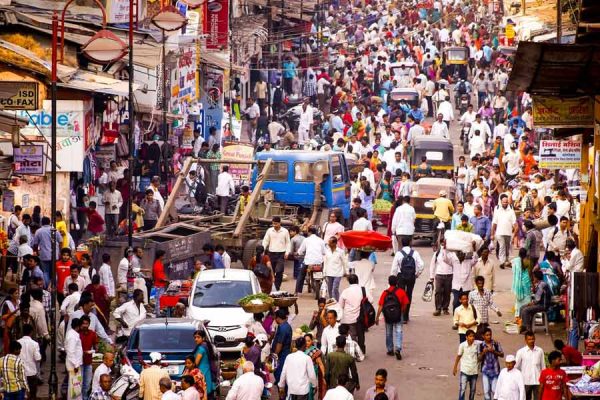
India at the Crossroads: Demography, Polarisation and Global Credibility
A senior-analyst deep dive into India’s future: demographics, poverty, BJP–RSS polarisation, diaspora backlash, separatist pressures, and global credibility risks.
Discover the profound teachings and cultural richness of Hinduism with Planet 92’s Hinduism category. Dive into articles that explore various aspects of Hindu philosophy, spirituality, rituals, and traditions, including:
– **Hindu Scriptures:** Explore insights from ancient texts such as the Vedas, Upanishads, Bhagavad Gita, and Puranas.
– **Hindu Deities:** Learn about the pantheon of Hindu gods and goddesses, their significance, myths, and symbolism.
– **Spiritual Practices:** Discover Hindu practices such as meditation, yoga, and temple rituals that foster spiritual growth and well-being.
– **Festivals and Celebrations:** Explore the vibrant festivals and cultural celebrations that are integral to Hindu life, such as Diwali, Holi, and Navaratri.
– **Philosophical Perspectives:** Engage with Hindu philosophical concepts such as dharma (duty/righteousness), karma (action and its consequences), and moksha (liberation).
Join us on a journey to deepen your understanding of Hinduism, its diverse traditions, and its enduring spiritual wisdom that continues to inspire millions around the world.

A senior-analyst deep dive into India’s future: demographics, poverty, BJP–RSS polarisation, diaspora backlash, separatist pressures, and global credibility risks.

This in-depth article explores the complex journey of monotheism in Hinduism, tracing its roots from the Vedic era’s focus on Brahman, through the influence of Brahmins and the shift to polytheism and idol worship. It examines how myths, rituals, and social structures evolved, impacting the spiritual and philosophical landscape of Hinduism. The enduring legacy of monotheism in Hindu philosophy is highlighted, offering insights into the religion’s adaptation and evolution over millennia.

Moksha, the ultimate goal in Hinduism, represents the liberation of the soul from the cycle of birth, death, and rebirth (samsara). It is achieved through various spiritual paths, including knowledge (Jnana Yoga), devotion (Bhakti Yoga), selfless action (Karma Yoga), and meditation (Raja Yoga). Moksha signifies union with Brahman, the eternal reality, leading to a state of eternal bliss, consciousness, and freedom from worldly suffering. This profound concept is central to Hindu philosophy and reflects the soul’s journey towards spiritual freedom and self-realization.

The rise of Hindu nationalism in India, led by the BJP, has resulted in severe consequences for religious minorities, particularly Christians and Muslims. The 2008 Odisha violence exemplifies the systematic targeting of these communities, with mob lynchings and forced conversions becoming distressingly common. India’s secular fabric is under threat as state institutions often fail to protect minorities, raising concerns about the future stability of the country. Is India on the path to another division?

Sikhism and Hinduism, both originating from India, represent distinct religious philosophies with significant differences in theology, social structure, and practices. While Sikhism is a monotheistic faith founded on the principles of equality and direct devotion to one formless God, Hinduism is a diverse religion with polytheistic elements, the caste system, and a vast array of sacred texts. This comprehensive analysis explores their core differences, historical development, and spiritual practices, shedding light on the unique paths these religions offer to their followers.

Jainism and Hinduism are two ancient religions from India with profound historical and philosophical differences. This in-depth analysis explores their core theological differences, including their concepts of divinity, karma, and liberation. It also examines their historical development, ritual practices, social structures, and how they address modern issues. By delving into the nuances of these two religions, we gain insight into their distinct approaches to spirituality and daily life.

Hinduism, one of the world’s oldest religions, encompasses a vast pantheon of deities and a rich tapestry of spiritual practices. Despite its deep cultural and spiritual heritage, Hinduism is often critiqued for not providing a complete system of life. This comprehensive analysis explores the fragmented nature of Hindu beliefs, the limitations in its legal and social frameworks, and the focus on spiritual practices over practical guidance. By examining these aspects, we gain insight into why Hinduism may be perceived as incomplete in addressing the full spectrum of human experience.

This comprehensive analysis explores the concept of “Love Jihad” in India, examining how it has been politically exploited to mobilize votes and create divisions. The article addresses misconceptions about jihad and Islam, the role of media in spreading misinformation, and the impact of related legislation on interfaith relationships and personal freedoms.

This comprehensive comparative analysis explores how Islam stands apart from other major religions—Hinduism, Christianity, Judaism, and Buddhism—by providing a complete and balanced way of life. It delves into the unique aspects and limitations of each religion, highlighting Islam’s holistic approach to personal, social, economic, and political matters, and examines how secular ideologies fail to fulfill spiritual needs.

Tantra is a complex and multifaceted spiritual path that combines ritual, meditation, and philosophical inquiry to achieve spiritual realization and union with the divine.